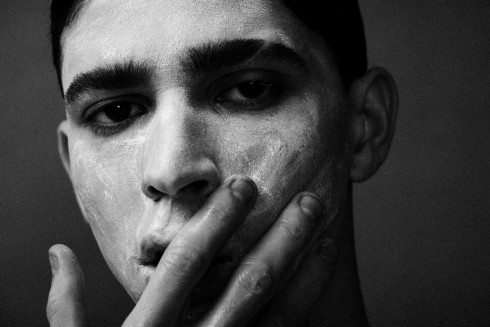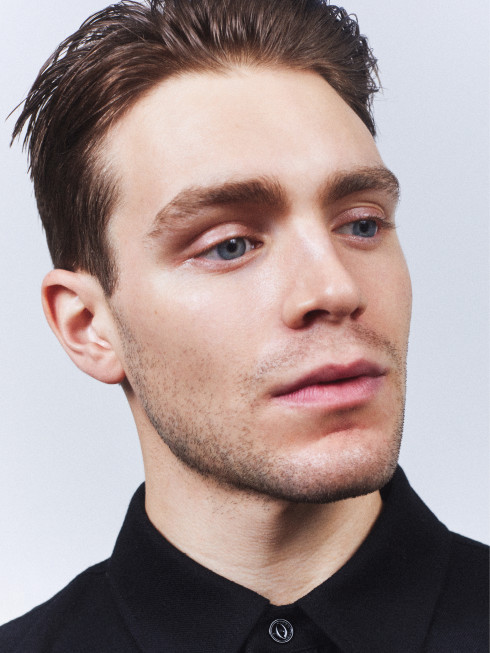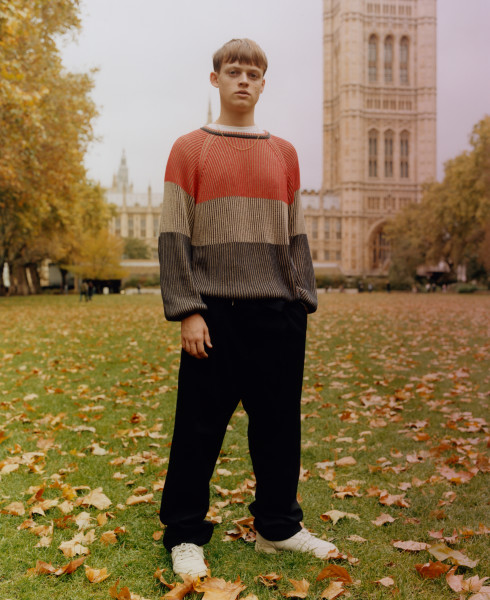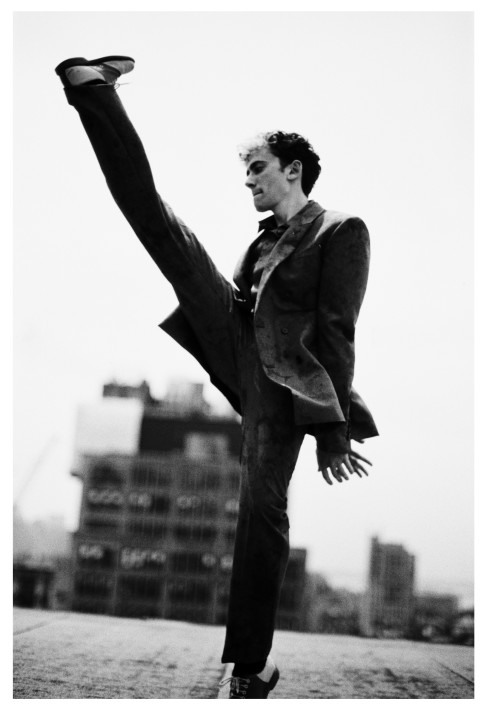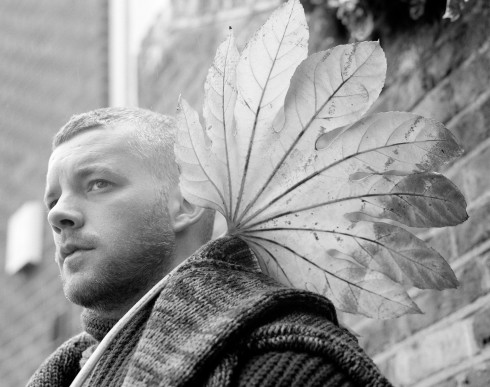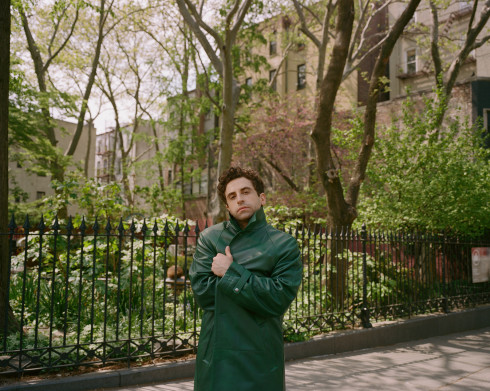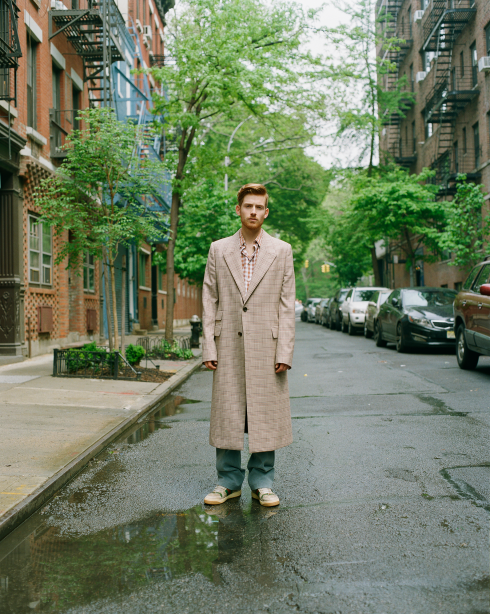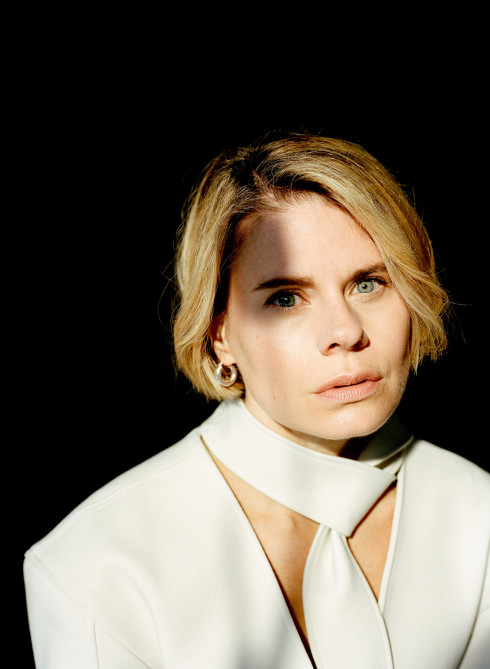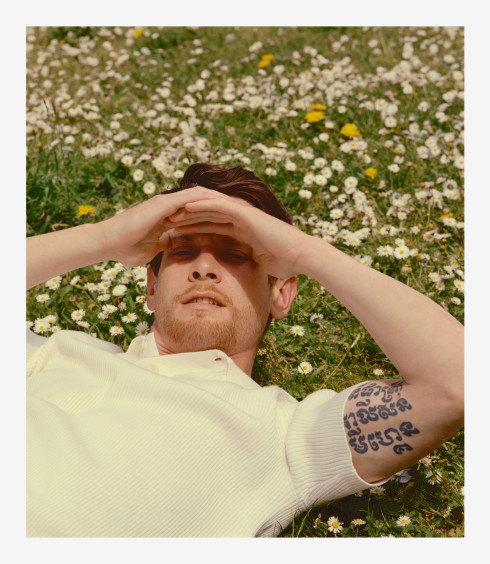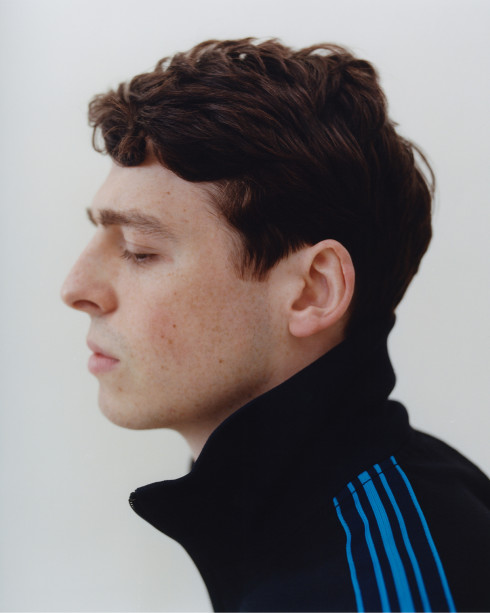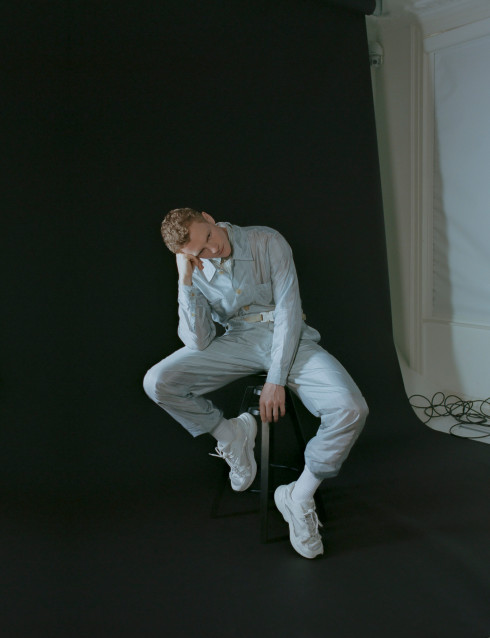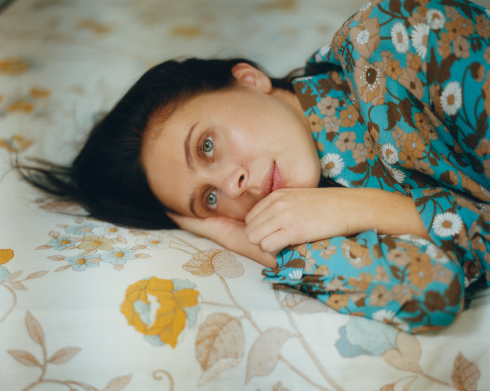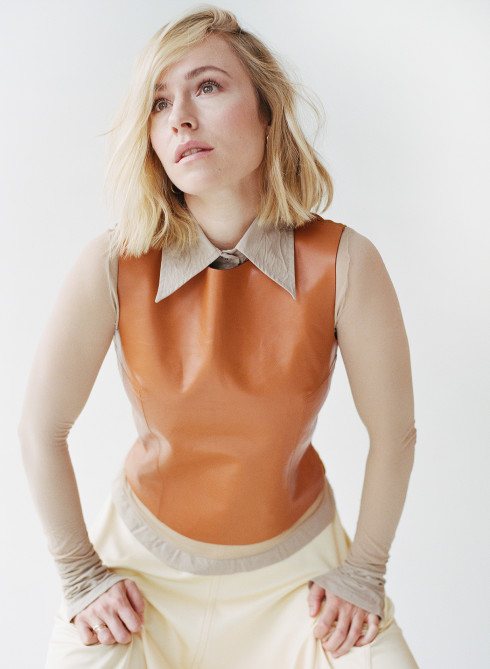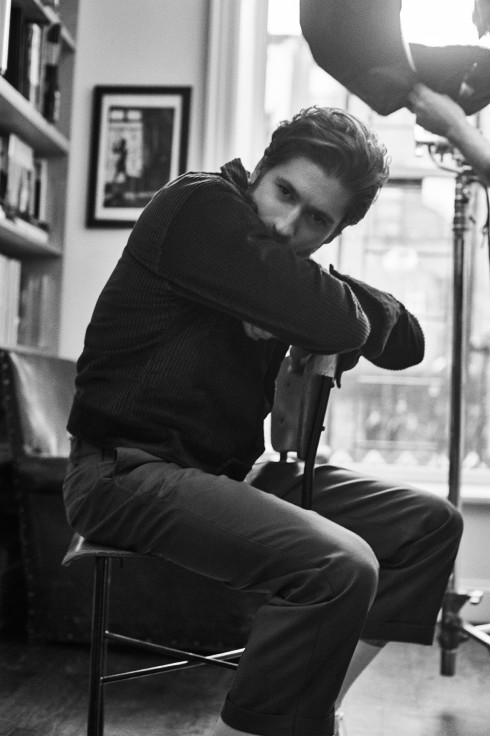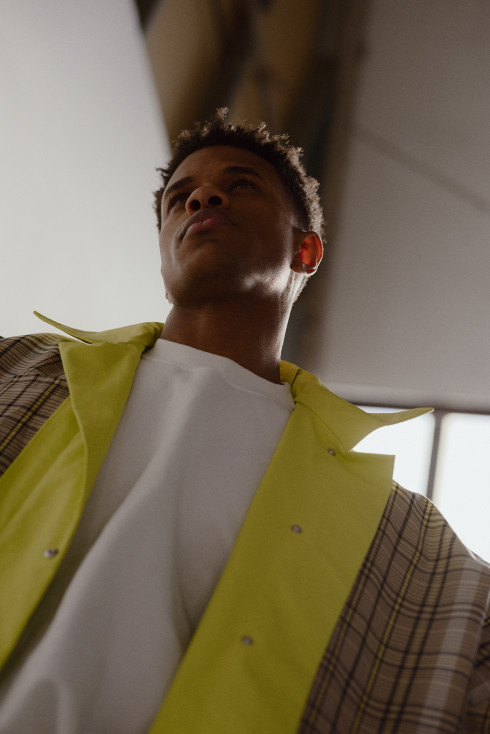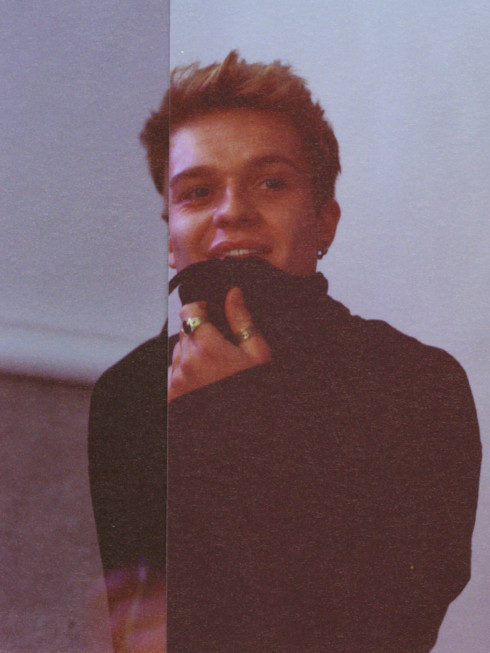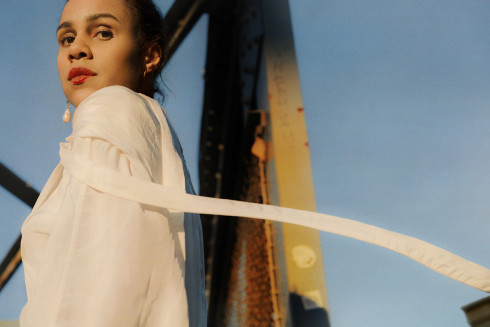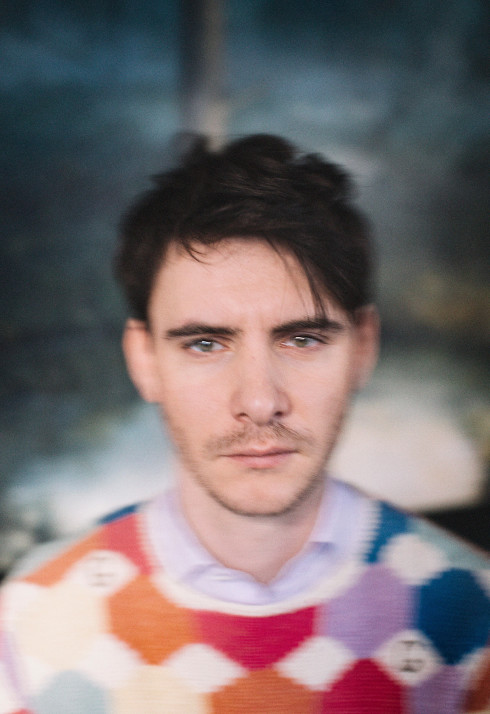
- By
- Jonathan Shia
- Photography by
- Jacob Sutton
Styling by Tracey Nicholson at Streeters London. Grooming by Tomo Jidai at Streeters London using Shu Uemura Art of Hair. Photographer’s assistants: Alastair Strong and Billy Ballard. Stylist’s assistants: Emma Rebecca Sly and Beatriz de Cossio Dominguez. Special thanks to Snap Studios, London.
TOM STURRIDGE TALKS '1984' ON BROADWAY
June is usually the slow season for New York theater. With the Tonys and Obies just announced, the month sees a dearth of new shows after the mad rush to meet the annual deadlines for award qualification. This summer, however, one of the most anticipated new productions of the year opened during the last week of June, a mere four months after being announced, bringing a refreshingly timely feel to an industry where shows often gestate for years before finally appearing onstage. It was not hard to see the appeal of that play, Robert Icke and Duncan Macmillan’s adaptation of George Orwell’s 1984, which forms a sharp Trump-era pair with Margaret Atwood’s The Handmaid’s Tale, also recently transformed into an Emmy-winning series on Hulu. Originally seen in England in 2013, the stage version of 1984 made its way through runs in London and several American cities before ending up in New York in 2017, where, as the show’s star Tom Sturridge—who plays Winston, the protagonist who vainly attempts to rebel against the authoritarian Big Brother government—notes, “there’s an obvious terrifying resonance to the current political climate.”
Emphatic, powerful, and bracingly visceral—enough so that audience members have been reported fainting and vomiting during its vivid torture scenes and Sturridge has broken his nose during a performance—1984 is a departure from standard Broadway fare, mostly musical adaptations of beloved movies and safe or star-driven retreads of acknowledged classics. The production, says Sturridge, who plays opposite Olivia Wilde and Reed Birney, is purposefully and insistently unsettling, reflective of both the original novel’s themes and its style. “This is definitely not a literal translation of the novel,” he explains. “People aren’t walking around a dystopian city wearing blue overalls, but at the same time, I think the intention was to give the audience the same experience as the reader has of the novel, which is one of discombobulation and confusion, where your loyalty to the narrator is constantly in flux. It creates a theatrical experience which is unlike any other. It’s not a traditional, linear story which resolves itself comfortably.”
Orwell’s 1984 has been a perennial classic since being published in 1949, often held up as a prescient vision of our contemporary society under constant watch by our internet overlords. Its latest rebirth as a bestseller of the Trump presidency teases out other strains in the novel, which Sturridge says are equally prophetic but possibly more ominous, and which come to the fore in the play. “When people think of 1984 and Big Brother, some people think of the surveillance state,” he says. “I guess that’s generated by the reality show more than anything else, but actually what I think is the most resonant about this production in particular is how one of the important facets of an authoritarian regime is the attempt to define reality. In our play, for example, you have someone trying to persuade someone else that two plus two equals five. One might regard that as an alternative fact. We live in a world in which the definition of reality is being manipulated and controlled in a way that’s very dangerous, and I think that’s key to this production.”
As artists begin to formulate their responses to the new world we live in, there’s no question that 1984—like Get Out and The Americans and The Handmaid’s Tale—has gained some power from its newfound pertinence. But Sturridge argues that, in doing so, it is merely fulfilling the purpose of art in all times, whether dark or enlightened. “Shakespeare put it better than anyone else, which is to say that theater should ‘hold, as ‘twere, the mirror up to nature, to show virtue her own feature, scorn her own image, and the very age and body of the time his form and pressure,’ and I think that is the role of art,” he says. “It’s to allow people to see themselves and then to make informed judgments about themselves and the world.”
1984 continues at the Hudson Theatre, New York. For more information, please visit RevisedTruth.com.
- By
- Jonathan Shia
- Photography by
- Jacob Sutton
Styling by Tracey Nicholson at Streeters London. Grooming by Tomo Jidai at Streeters London using Shu Uemura Art of Hair. Photographer’s assistants: Alastair Strong and Billy Ballard. Stylist’s assistants: Emma Rebecca Sly and Beatriz de Cossio Dominguez. Special thanks to Snap Studios, London.
